Posted on 5/30/2024

Have you ever stepped into your car and been greeted by a peculiar odor? Car smells can be more than just an annoyance; they can indicate underlying issues that need attention. Understanding these smells and their causes can save you from potential hazards and major repairs. Let's decode what the different smells mean for your vehicle. 1. The Smell of Burning Rubber One of the most alarming smells that can permeate your car is that of burning rubber. This scent often indicates that a rubber component is coming into contact with a hot surface. Common culprits include a loose hose, a slipping drive belt, or even a misaligned tire that's rubbing against something it shouldn't. Ignoring this smell can lead to further damage and possibly hazardous situations. If you detect this odor, it's best to pull over and investigate or seek professional help immediately. 2. A Sweet, Syrupy Smell If you notice a sweet, syrupy odor in your car, it's likely antifreeze or coolant l ... read more
Posted on 4/29/2024
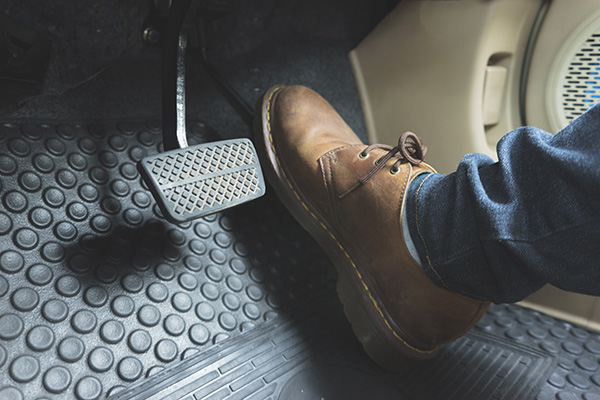
Have you noticed a sluggishness in your car's acceleration lately? It's a common concern among drivers, but what exactly could be causing this decline in performance? Here are the top five reasons your car may not be accelerating as it used to. 1. Clogged Air Filters One potential culprit behind sluggish acceleration is a clogged air filter. Over time, dirt, debris, and contaminants can accumulate in the air filter, restricting airflow to the engine and impeding combustion efficiency. A simple air filter replacement can breathe new life into your engine and restore optimal acceleration. 2. Fuel System Issues A malfunctioning fuel system can also contribute to poor acceleration. Whether it's a clogged fuel filter, faulty fuel injectors, or a failing fuel pump, any disruption in the fuel delivery process can result in sluggish performance. Regular fuel system maintenance and inspections are the key to ensuring consistent acceleration ... read more
Posted on 3/21/2024
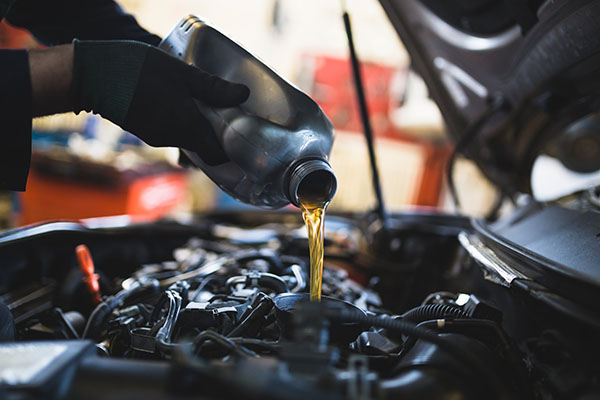
When it comes to reliable and adventurous SUVs, the Toyota 4Runner stands tall as a timeless favorite among drivers. With a robust build, off-road capabilities, and a touch of nostalgia, the 4Runner has carved a special place in the hearts of enthusiasts. Unique Design and Off-Road Prowess One of the key features that set the Toyota 4Runner apart is its unique design. Unlike many modern SUVs that have transitioned to a unibody construction, the 4Runner maintains its body-on-frame design. This traditional approach contributes to its exceptional off-road capabilities, making it a go-to choice for those seeking rugged adventures. The 4Runner's robust underpinnings provide durability and strength, which is essential for those who want to tackle diverse terrains. History of the 4Runner The Toyota 4Runner has a rich history of reliability that spans multiple generations. From its debut in the 1980s to the present day, the 4Runner has consistent ... read more
Posted on 2/28/2024
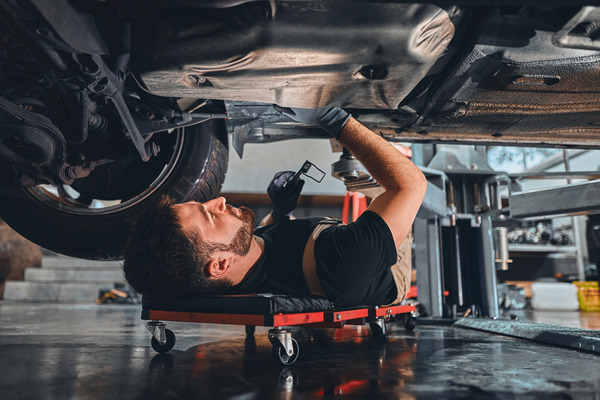
Have you ever been driving along, only to be startled by strange sounds coming from your vehicle's suspension system? Understanding what these noises indicate can help you address potential issues before they escalate into costly repairs. That's why we will share five common noises your suspension system might make when it's having problems. 1. Clunking or Knocking Sounds One of the most common suspension noises is a clunking or knocking sound, often heard when going over bumps or rough roads. This sound could indicate worn-out or damaged suspension components such as ball joints, control arm bushings, or sway bar links. Ignoring these noises could lead to further damage and compromise the safety and stability of your vehicle. 2. Squeaking or Creaking Sounds If you notice a squeaking or creaking noise when turning the steering wheel or going over bumps, it could be a sign of worn-out or dry bushings in the suspension system. Over ... read more
Posted on 1/31/2024
.jpeg)
You're driving, enjoying your day when your car's check engine light suddenly turns on. Annoying, right? Your car is trying to tell you something, but what? One of the most common messages it's trying to convey is coded P0101. Let's decode this mystery. Understanding the Basics P0101 is a code that relates to the Mass Air Flow (MAF) sensor in your vehicle. This sensor measures the amount of air entering the engine - a critical factor for your engine to run properly. When the P0101 code pops up, it essentially means there's an issue with the readings from the MAF sensor. But why does this matter? Well, without accurate air flow measurements, your engine can't manage fuel injection effectively, which can lead to a whole host of problems. Why Does The P0101 Code Occurs When delving into the reasons behind the P0101 error code, it's crucial to understand the role of the Mass Air Flow (MAF) sensor in your vehicle. This ... read more
Posted on 12/26/2023
.jpeg)
Cruising down the road, the hum of your engine and RPMs winding up. Yet, as a car enthusiast, you might find yourself wondering if there's something more you can squeeze out of that exhaust note - maybe remove the muffler? The realm of performance exhaust systems is an avenue often considered by those seeking to elevate their driving experience. Today, we'll unravel the considerations that might make you ponder – should I consider getting a performance exhaust system, and why? The Basics of Exhaust Systems Before delving into the performance realm, let's revisit the basics. Your car's exhaust system plays a pivotal role in expelling gases produced during combustion. It consists of a series of pipes, a muffler, and a catalytic converter. Stock exhaust systems are designed for efficiency and noise reduction. The main component ... read more
Posted on 11/30/2023
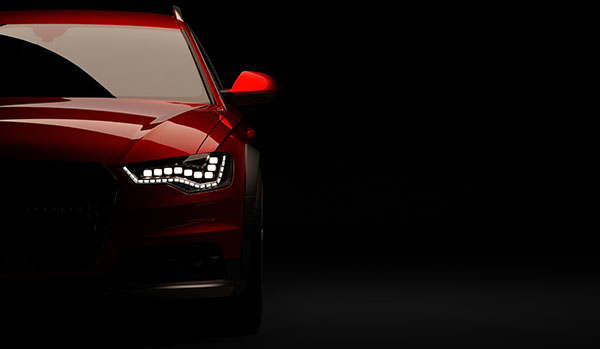
When you slide behind the wheel of a European car, you're not just taking control of any ordinary vehicle. The hum of the engine, the sleek lines of the bodywork, the touch of plush leather – it all comes together to create an experience that's nothing short of excellent. Yet, for all their allure, European vehicles come with their own set of common issues that can, at times, temper the joy of ownership with a touch of real-world practicality. The Double-Edged Sword of Innovation Sophistication and complexity are hallmarks of European car design, particularly when it comes to electrical systems. While these intricate networks of wires and circuits deliver a driving experience that's both responsive and rich with features, they can also be the source of puzzling glitches. From unpredictable dashboard messages to navigation ... read more
Posted on 10/30/2023

Just imagine starting up the engine of a classic powerhouse, feeling the raw adrenaline coursing through your veins as you embrace the spirit of a true American muscle car. The 2010 Chevy Camaro SS is a modern interpretation of a legendary icon that captures the essence of a bygone era, while incorporating contemporary innovations and exhilarating performance. It's a true gem that is sure to leave you with a smile on your face!Why Is It The Best Model?The 2010 Chevy Camaro SS stands out as one of the best Camaro models due to its powerful 6.2-liter V8 engine, delivering an exhilarating 426 horsepower and 420 lb-ft of torque. Its impressive acceleration, striking exterior design, and engaging driving dynamics make it a standout option for enthusiasts seeking an authentic American muscle car experience. When compared to ... read more
Posted on 9/30/2023
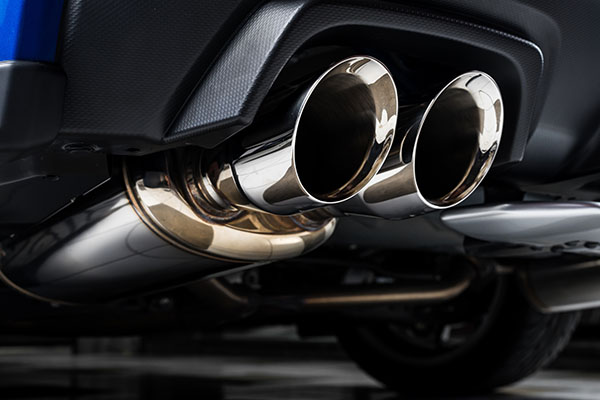
In the moonlit shadows of the automotive world, a clandestine crime wave has been sweeping across the streets, leaving car owners bewildered and frustrated. The target? The humble yet crucial component is known as the catalytic converter. But what exactly is this device, and why do thieves prize it so highly? The Catalytic Converter Unveiled To understand the allure of catalytic converters to thieves, we must first grasp their significance in the automotive ecosystem. Picture this: You're cruising down the highway, your engine purring like a contented cat, and your exhaust pipe quietly purifies the noxious fumes your vehicle produces. The unsung hero behind this cleaner, greener experience is the catalytic converter. This unassuming device, often located in your car's exhaust system, is tasked with a vital mission – reducing harmful emissions. It plays a pivotal role in converting harmful pollutants like carbon monoxide, nitrogen oxides, and hydrocarbo ... read more
Posted on 8/31/2023
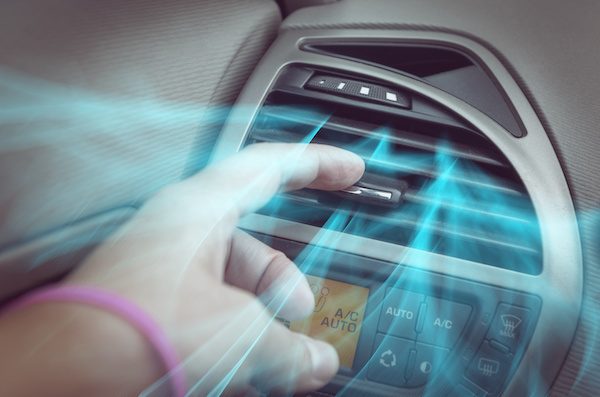
As the sun's rays beat down in Texas, your car's air conditioning system becomes your ultimate friend. It transforms the stifling interior into a cool oasis, providing you with comfort and respite. But have you ever wondered how this magical transformation occurs? Today, we're delving into the intricate world of your car's A/C system – from its inner workings to the signs that it's time for repairs. The Science of Cool Air in Cars Your vehicle's air conditioning system operates on a simple yet effective principle: it removes heat from the interior and releases it outside. Here's a brief overview of how this process unfolds: Step 1 - Compression: The refrigerant, a chemical compound responsible for cooling, is compressed into a high-pressure gas. Step 2 - Condensation: As the compressed refrigerant moves through the condenser located in front of the radiator, it releases heat and transforms into a high-pressure liquid. Step 3 - Expansion: The high ... read more